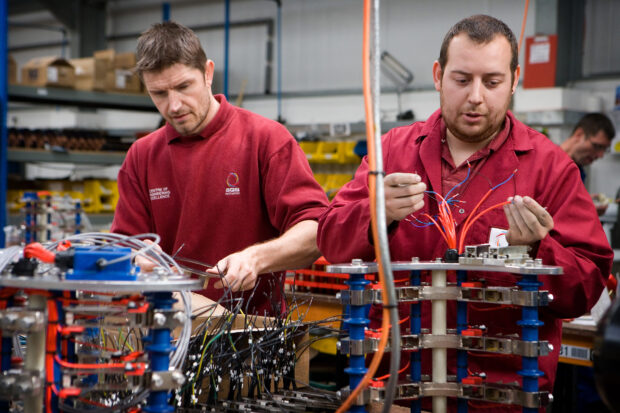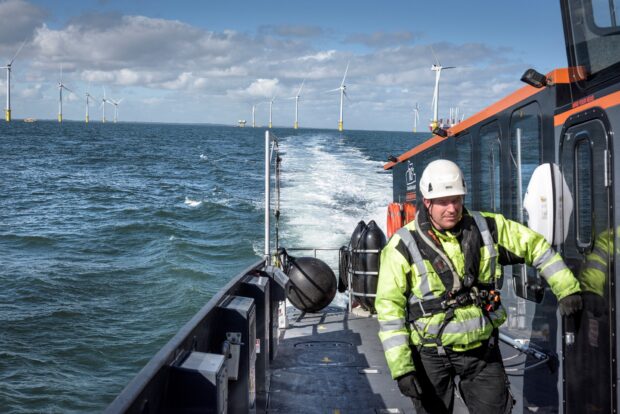
How should we position Greater Lincolnshire for the future?
This is the question at the heart of our work to develop a Local Industrial Strategy in Greater Lincolnshire.
A similar conversation is going on in places across the UK, and indeed across the world, as communities grapple with the impact of global trends such as technological disruption, demographic change and a shifting political environment.
These trends operate at a global level but they are felt locally.
It is increasingly recognised that interventions to help re-balance the UK economy - so that the benefits of globalisation and economic growth are more evenly distributed - will need to be locally nuanced.
But what does this mean in practice? Especially for an area like Greater Lincolnshire which has a dispersed geography taking in smaller cities and towns as well as rural and coastal communities?
We have given this issue a lot of thought while developing our recently published framework and call for evidence.
Listening to the evidence
To get to this point we have needed to undertake significant research and consultation, layering multiple different types of information and inputs in order to draw out the opportunities that are distinctive to Greater Lincolnshire.
This is about more than picking sectors - it is about considering a range of local lenses through which we view the environment that our businesses operate in such as the dispersed rural and coastal geography, the characteristics of our population, the nature and scale of our businesses.

We are particularly keen to develop areas of competitive advantage, where we can find new solutions based on crossover points between sectors/industries and technology.
This approach is aiming to pass what is being described as the 'Tipp-Ex test' – meaning that you should be able to tell where the strategy is about even if you remove the words Greater Lincolnshire.
These are the emerging priorities, which we believe will pass this test:
Future proofing the Agri-Food Industry
Greater Lincolnshire grows 25% of England’s vegetables and processes 70% of its fish. The share of jobs in food processing is 4.5 times higher than in the UK.
Through the LIS we want to create new jobs in higher skilled occupations (engineering, software, digital production management), increase investment in innovation and support more businesses to adopt new technology and enhance productivity.
A rural innovation test-bed for energy and water
Greater Lincolnshire has above average and growing levels of employment in this area. More than 80% of our businesses describe the cost of energy as ‘quite’ or ‘extremely’ significant as a barrier to business growth.
We are developing new solutions which can build on a range of significant physical assets including the increasing number of anaerobic digestion plants based on farms across Greater Lincolnshire and off-shore as well as on-shore wind power.
Through the LIS, we want to develop platforms to enable public and private collaboration, pilots to test new methods / technologies such as smart grid building the business case for new forms of energy and water capture, storage and distribution.
An innovative health industry that’s meeting the challenges of an ageing and rural population
By 2030 the population of over 75s in Greater Lincolnshire is projected to increase by 50% and make up 1 in 7 people.
Between 2014 and 2024, it is expected that there will be a net requirement for over 26,000 jobs in the sector, higher than any other sector in Greater Lincolnshire.

The new National Centre for Rural Health has recently been established in Greater Lincolnshire to generate new solutions and market opportunities in rural areas.
Through the LIS, we want to develop an innovative health industry that meets the challenges of an ageing and rural population, increase the involvement of SMEs working in partnership with public providers and work with the public sector to support more efficient use of public resources.
A high-quality, inclusive visitor economy
The visitor economy is worth over £2.2 billion to the Greater Lincolnshire economy.
In coastal areas the sector makes up a particularly large proportion of the local economy. 30% of East Lindsey’s Economic Output and 20% of North East Lincolnshire’s.
However, employment within the sector is highly seasonal and high prevalence of the sector correlates strongly with areas of higher than average deprivation.
Through the LIS we want to support less seasonality in the sector, generate better quality employment, develop a tourism offer that attracts higher spending visitors throughout the year underpinned by a vibrant creative and cultural offer.
An adaptive ports and logistics Industry driving greater connectivity
25% of the UK’s rail freight is handled by Greater Lincolnshire’s ports. The port of Grimsby/Immingham is the UK’s largest port by tonnage.
Alongside this, logistics is a growing specialism within the region. Infrastructure has been a long-standing priority of the LEP given peripheral nature of our area.
Through the LIS we want to look at how to build on these assets and generate new solutions for developing infrastructure in a dispersed economy.
Our call for evidence has now closed and as we sift through responses we hope to further nuance and drill down to develop a clear plan of action over the coming months.
As our work progresses, our hope is that these priorities will open up discussions at both a national level and with a colleagues in other areas across the UK as we identify shared interests and issues.
